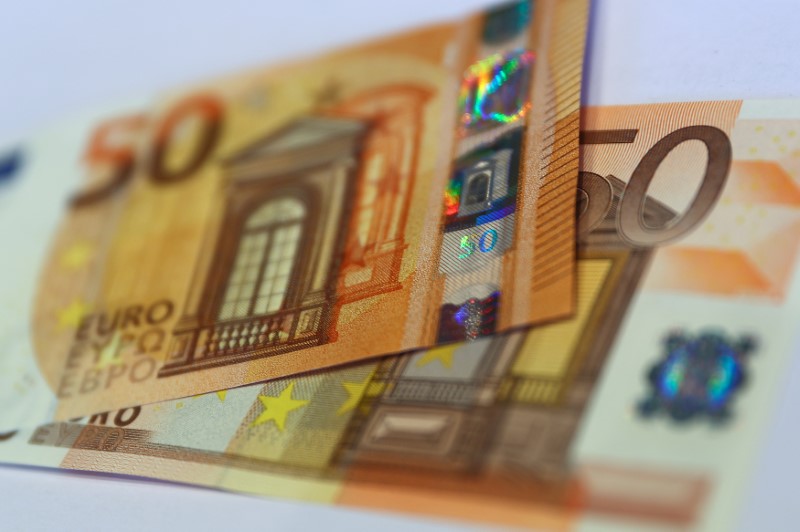 © Reuters. FILE PHOTO: The German Bundesbank presents the new 50 euro banknote at it’s headquarters in Frankfurt
© Reuters. FILE PHOTO: The German Bundesbank presents the new 50 euro banknote at it’s headquarters in FrankfurtFRANKFURT (Reuters) – The past appreciation of the euro may still weigh on inflation for several more quarters, but this effect could be masked by the increased pricing power of firms, the European Central Bank said in a research article on Wednesday.
The ECB has been stimulating the economy for years to rekindle inflation but the euro’s surge in the past year – partly reversed in recent weeks – has supported calls by ratesetters to tighten policy only by increments to avoid choking off growth and inflation.
“The appreciation from mid-2017 might still be relevant for some quarters to come,” the ECB said in a economic bulletin article. “The exchange rate pass-through may be difficult to detect if it is offset by a confluence of other factors, including increased pricing power for firms.”
The euro is up over 4 percent against the dollar compared to a year ago but has declined nearly 7 percent since its peak in the first quarter.
Prices of non-energy industrial goods are the most sensitive to exchange rate movements, as the import component is high and only distribution and retail margins separate their prices from consumer prices.
Still, producer price inflation has remained resilient to downward pressure from the exchange rate appreciation since such prices depend in large part to domestic labor and non-labor cost.
This could potentially hide the downward pull from the exchange rate since labor costs are on the rise and increase capacity utilization is giving firms increased leverage in pricing, the ECB added.
“Together, these factors may as yet have offset the downward pressure from the exchange rate,” the ECB said.
Fusion Media or anyone involved with Fusion Media will not accept any liability for loss or damage as a result of reliance on the information including data, quotes, charts and buy/sell signals contained within this website. Please be fully informed regarding the risks and costs associated with trading the financial markets, it is one of the riskiest investment forms possible.
Source: Investing.com





























